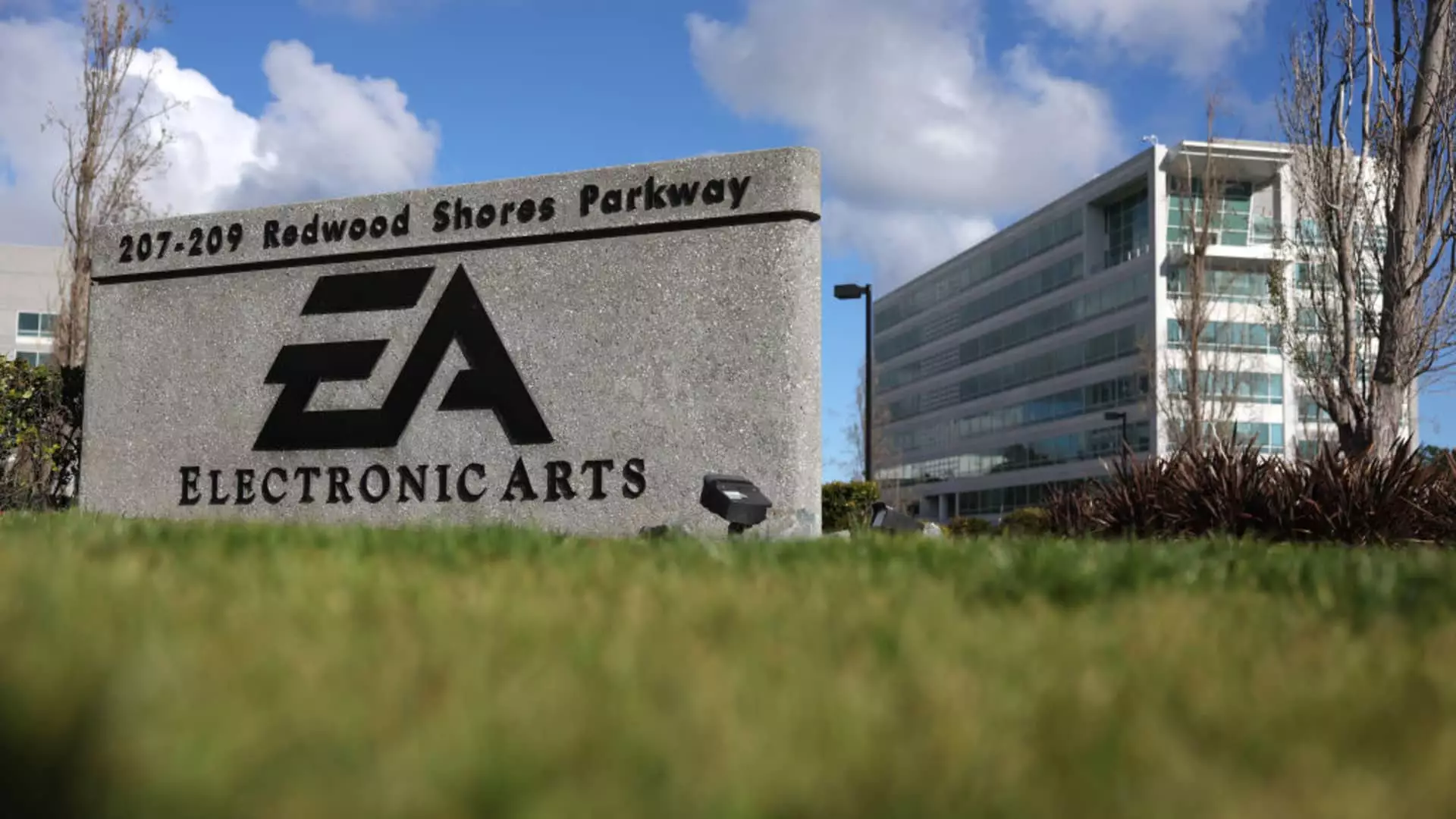The recent turbulence at Electronic Arts (EA) signifies a pivotal moment for one of the gaming industry’s reigning titans. Following a drastic revision of its full-year bookings forecast, EA’s stock has plummeted 19%, marking the most significant drop since the dot-com collapse of the late 1990s. As it stands at $115.86, this downturn not only reflects immediate investor responses but also underscores deeper issues within the company’s flagship franchises, particularly the once-thriving soccer segment.
For over two decades, EA’s soccer games, previously branded under FIFA, have been at the forefront of sports gaming. However, since the dissolution of its partnership with FIFA in 2022, the company has rebranded its soccer efforts as EA Sports FC. The shift appears to have alienated a portion of its player base, contributing to disappointing sales that have now reverberated through EA’s earnings estimates. The latest financial guidance indicates expected net bookings of approximately $2.215 billion for the fiscal third quarter, sharply revised from earlier projections of up to $2.55 billion. This significant drop is alarming, particularly in an environment where digital gaming is typically buoying revenues.
The ramifications of EA’s underperformance have not gone unnoticed by market analysts. Reports from Roth Capital Partners labeled the preannouncement of earnings as a “big stumble,” especially highlighting the “weakness from the Global Football franchises.” This criticism reflects broader concerns regarding not just the financials but the sustainability of EA’s flagship offerings. The stark reality is that EA is grappling with decreased player engagement; its latest role-playing title, Dragon Age, boasted only 1.5 million players—50% short of expectations.
As the gaming landscape continues to evolve, players increasingly seek fresh and innovative gaming experiences. EA’s foresight in a competitive field is now brought into question, especially as it anticipates net bookings for the full fiscal year to dip below previous forecasts. This can be concerning, especially as live service revenues are integral to modern gaming business models. The decline signals that EA’s endeavors to innovate within their sports titles must accelerate, or risk losing market share to more agile competitors.
EA plans to release its comprehensive third-quarter results on February 4, which will likely shed more light on this unsettling trajectory. As the company navigates this challenging phase, the focus will inevitably shift to how it can rejuvenate its core franchises and restore investor confidence. Innovating storytelling, enhancing gameplay mechanics, and creating a more engaging online experience will be key for reincorporating the vast player base that has historically rallied around their celebrated titles. Without a robust strategy in place, there’s a palpable risk that EA may struggle to recapture its erstwhile glory in the gaming sphere.
Electronic Arts stands at a crucial crossroads, where its performance today could dictate the successes or failures of tomorrow. With significant introspection and proactive adaptation, it might still steer away from the current downward spiral.


Leave a Reply